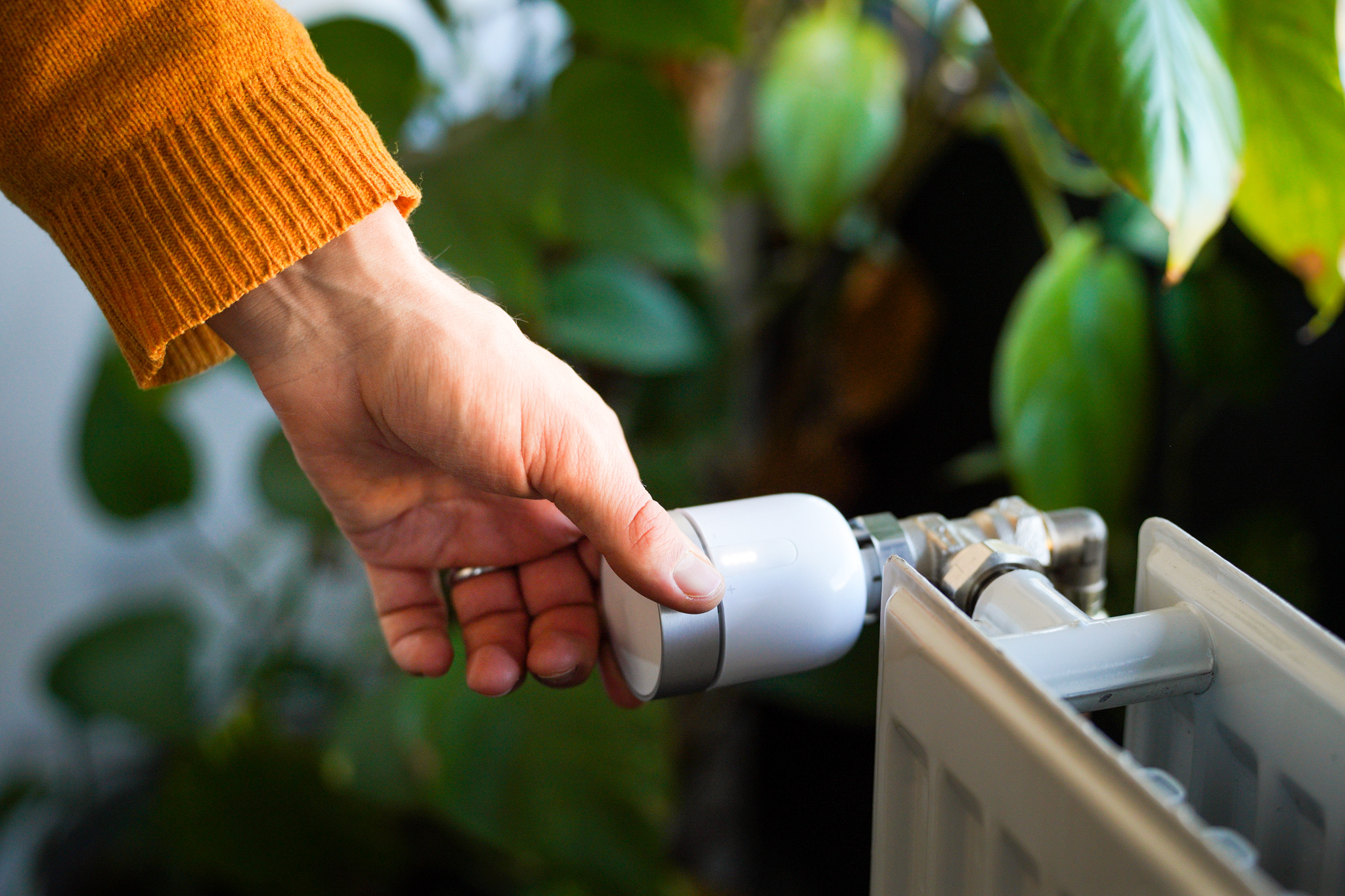The Consumption and Energy Saving Monitor (CSM) is the latest innovation from vilisto to make the proptech company’s smart thermostats even smarter. The new software pinpoints energy waste in real-time by analysing and visualising data from the heating system and integrates it with room data continually captured by the thermostats. By leveraging this expanded data foundation companies, municipalities and property managers can now save even more CO2 emissions and heating costs with less effort.
Data and digitalisation are playing a growing role in heating
Data-driven, automated heating in non-residential buildings (also known as digital heat management) is gaining significant traction in Germany. The need to meet climate protection mandates, gain competitive advantages, and alleviate the strain on facility management teams impacted by labor shortages drives this shift.
However, accurately evaluating the impact of climate protection measures has historically been a challenge. “In contrast to conventional approaches, our consumption and savings monitor no longer requires historical consumption data to quantify the achieved heating energy savings,” announces Christoph Berger, Managing Director of vilisto.
According to the company, the CSM links room data and heating data in real-time. The self-learning thermostats, equipped with integrated sensors to analyze room data, are now complemented by measurements from heating systems: Serving as an interface to digital heat meters, the CSM provides regular updates on energy consumption. “With the CSM, we bridge the information gap between the heating system and radiators, enabling comprehensive energy consumption tracking through a central platform – like a fitness tracker,” explains Berger. Building managers can use automated consumption and savings reports throughout the year to pinpoint where energy is potentially being wasted and where additional savings can be implemented. This potential can then be realized through the use of intelligent thermostats, controllable via the online platform, with the results of these optimizations directly reflected in the CSM.
The scale-up has channelled several million euros into the development of the consumption and savings monitor, supported in part by a funding initiative from the Federal Ministry for Economic Affairs and Climate Protection. This program incentivizes solutions that align with the climate protection regulations. “We are also backed by our investors, SET Ventures and E.R. Capital Holding, who recognize the transformative potential of this product development for the building sector,” adds Berger.
The adoption of this technology is much more than a climate protection measure, but also a sound business decision. “vilisto’s digital heat management lays the foundation for sustainable efficient building operations. In the short term, it ensures compliance with climate protection regulations and safeguards property value by mitigating the risk of stranded assets. In the long term, energy-efficient buildings are better positioned for a cost-effective transition to renewable energies,” Berger emphasizes.
Introducing a Rental Model for Accessibility
A further milestone is the introduction of a rental model for smart thermostats, reducing upfront costs for customers. Unlike energy-efficient refurbishments, the implementation of a digital heat management is a low-barrier savings measure. According to vilisto, this low-investment efficiency measure has an average payback period of one to five years. By offering thermostats for rent, vilisto makes the technology accessible to a wider range of property managers and building operators, including cases where building ownership and usage are separated. Property managers may also potentially pass rental costs on to tenants, further enhancing affordability.
Buildings cause too much CO2
According to the dena Building Report, the building sector has been failing to meet its climate targets for years. As a result, building managers face mounting pressure to enhance the energy efficiency of their properties. On the one hand, regulations such as the German Energy Efficiency Act (Energieeffizienzgesetz, EnEfG) and the Building Energy Act (Gebäudeenergiegesetz, GEG) set stringent standards for building performance in alignment with climate goals. Simultaneously, sustainability is becoming a key competitive factor for attracting talent, securing business partnerships, and retaining tenants. Amid labor shortages, many managers are turning to digital solutions. Solutions like vilisto’s CSM to modernize building management and meet these challenges.
About vilisto
vilisto is a Hamburg-based climate protection company that developed a digital heat management to reduce energy consumption in non-residential buildings. At the heart of the energy-saving solution are intelligent thermostats that use patented, integrated sensors and self-learning algorithms to detect room usage and automatically optimize the temperature. This not only saves energy, but also reduces CO2 emissions. Consumption, savings and room data can be viewed and further optimizations can be made via a connected online platform. vilisto was founded in 2016 by Christoph Berger, Christian Brase and Lasse Stehnken and currently employs around 90 people. More than 300 customers are already part of the climate mission – including companies such as CLS Holding and public clients such as the City of Hamburg. More information: www.vilisto.de.
Press contact
vilisto GmbH
Kerstin Brouwer
Tel: +49 40 3346 812 00


